Culture on the Dexheim farm
Dexheim, just a few minutes' drive from Nierstein. A beautiful little Rhine-Hessian Rhine village. But if you think that foxes and hares say goodnight to each other in the vineyards here, you're far from it. Wolfgang Weyell has been running a winery here for 30 years. "Culture on the farm" together with his Madeleine. He grew up on the farm, his parents still live here today and actively help out. His two sons also lend a hand - a real family business. The winery is 300 years old, but there is no trace of dust, cobwebs or old buildings. Over the years, the farm has been rebuilt and modernized, most recently with a pavilion and a porch. Not least to counter the growing dangers of the sometimes unpredictable weather conditions. One of the biggest challenges in their work, as Wolfgang tells me.
Kultur auf dem Hof now hosts 60 events a year, and the wine bar, which is mainly run by his wife Madeleine, is also open on 50 days. Initially, events were only held in the courtyard, but a solution had to be found for the cold season. So in 1998, the cellar was extended with space for 120 guests and has been used for cabaret events ever since. In 2009, the barn was added with a small club stage where up to 300 partygoers can let off steam.
But how did the 60-year-old get involved in the arts in the first place? He originally studied sport and business administration and also completed a banking apprenticeship. He has always enjoyed going to concerts and was interested in music. He organized discos and rock events for the Dexheim sports club. Then, in 1995, fate took its course: after the old gymnasium was demolished, he moved these events to the courtyard of the Weyell winery for the first time on the occasion of the Kerb. This went so well that they repeated it and in 1998 Wolfgang took the plunge into self-employment. What started out small quickly became big: while artists' agencies initially had nothing to do with the winery from Dexheim, the Kulturhof has now become a permanent fixture throughout Germany. "No matter where you travel in Germany, there are always people who know Dexheim because they've been here before," Wolfgang tells me. This has been built up over 30 years. Stars such as Michael Schulte and Max Giesinger now play on the farm, Urban Priol took his first steps here and is now, as they say, "a big name". And still comes to the farm in Dexheim in Rhine-Hesse once a year. Wolfgang has wanted one guest for many years and has made every effort to include him in the program: Chris de Burgh. And at some point, the longed-for call from the agency actually came: a stop in Dexheim would fit in well with the Irishman's tour schedule - and so the singer actually performed in Dexheim in Rheinhessen. A fact that Wolfgang is still proud of today. Other artists also enjoy coming to the farm and appreciate the special ambience. This includes comedians Torsten Sträter and Bülent Ceylan, who usually perform in front of larger audiences. However, they have managed to assert themselves against the wishes of their agencies and have repeatedly come to Kultur auf dem Hof at their own request.
And I can see why: Wolfgang Weyell is a sociable, open and down-to-earth host who, together with his wife and the support of his family, has created a place where guests feel completely at ease. The program has something for everyone - both in terms of content and culinary delights. In addition to classical music events of various genres, cabaret and parties, Wolfgang now also organizes children's events such as Heavysaurus or Mom's Night Out, which is mainly run by one of his sons. Culture on the farm combines the flair of a bygone era with conviviality and joie de vivre on the 300-year-old winery. After our conversation, which soon turns not only to work on the farm but also to literature, travel and life, I am bid farewell with a friendly hug. I would definitely like to come back.
Event tips:
Culture on the farm:
Hole full of Love (70ies AC/DC), 04.10.2025
Traditional slaughter festival, 01.11.2025
Shiver (Coldplay tribute), 12.12.2025
Good life at Morstein
The sun is shining through the leaves of the trees as I walk onto the Good life at Morstein drive towards. As soon as I pass the sign for Westhofen, I realize that I am entering a different world, as if I have been transported a few centuries into the past. As if carriages and horses blend into the townscape better than modern cars and e-scooters do. A historic town with the inimitable flair of times gone by.
Stefan Spies, the owner and operator of the estate, and I sit down at a table in the in-house restaurant, surrounded by antique furniture and paintings on the wall. My gaze wanders around again and again during our conversation and lingers on the many lovingly arranged details. This includes a painting by a Westhofen artist from 1893, which has been hanging here since the building was completed. And the estate is home to many such stories. It forms an ensemble of various buildings, some of which date back to the 18th century and include a hotel, restaurant and conference rooms. And the estate is growing: a third expansion phase is currently underway and Stefan Spies has just returned from a construction meeting. He wants to design in the truest sense of the word - he is still fascinated by the appeal of turning the former ruin into an attractive property with a wide range of offers. He originally acquired the property in 2013 as a hobby and actually runs an advertising agency in Frankfurt. Four years later, he opened the restaurant and the vaulted cellar, followed shortly afterwards by the hotel and the conference rooms. This vaulted cellar with its incredible acoustics was also the starting point for bringing culture to the estate - so it was there from the very beginning. It reminded Stefan Spies of the Mainz Unterhaus and he thought to himself: "Culture must take place here."
You might think that the coronavirus pandemic and the associated restrictions on events would have put a damper on this thriving cultural sector. But quite the opposite: Stefan Spies and his team seized the opportunity. While the majority of events around them were being canceled, they thought: "We'll do it now more than ever!". Until then, events had only been held in the vaulted cellar during the cold season. But now, for the first time, they took the bold step of organizing the Morstein Open Air Culture Festival with regional artists - who were naturally grateful to be given the opportunity to perform in these challenging times. The festival was a complete success and took place every year from then on. In recent years, some well-known artists have stopped off at the estate in Westhofen - such as Wolfgang Niedecken from BAP and Konstantin Wecker. They appreciate the good food, the informal atmosphere and the contact with the guests.
Guests, in turn, appreciate the wide range of events on offer at the "Leben am Morstein" estate: from concerts of various genres to cabaret and comedy events to culinary delights and parties, everything is represented in the portfolio. The experience is rounded off with a meal in the in-house restaurant and an overnight stay in a hotel with a special atmosphere in a flourishing, green setting. Stefan Spies says: "I simply enjoy culture." And I notice this when I talk to him - his curiosity about art and culture and people is still clearly noticeable, his eyes light up as he tells me about his ideas. It's about being open to new and unknown things. When he was at school, for example, he didn't find the right approach to classical music and found it very complex. Now he loves it.
The "Leben am Morstein" estate offers cultural enjoyment at the highest level without appearing pretentious or elitist. With its combination of restaurant, hotel and cultural offerings, the estate is not only an attractive anchor point for tourists, but also a place of togetherness for guests from Rheinhessen and the surrounding area. It remains exciting to see how the estate will continue to develop thanks to the tireless drive and enthusiasm of owner Stefan Spies - and I look forward to witnessing these changes and to stopping by again and again, both privately and professionally.
Culture farm Oma Inge
When I see the Culture farm Oma Inge in Schornsheim, I would probably choose the following keywords: colorful, open, unconventional. The farm is somehow a bit of everything, but above all a wonderful socio-cultural center in the middle of a small Rheinhessen community with 1,600 inhabitants.
Christina Bruns-Yilmaz and her husband Ates run the courtyard on a non-profit basis; she works as an international project manager at Boehringer Ingelheim, Ates is employed by the Mainz State Theatre as a solo clarinettist and education officer for the orchestra. And this connection to the professional world of music and theater is also reflected in the design of the courtyard: There are props here and there in the Kulturscheune that make the space something very special - there is always something to discover. From one of my previous visits, for example, I remember a huge glowing flamingo hanging on the wall in the theater hall.
They manage it all on the side - and are also parents to six children aged between 18 and 30. "We take it one step at a time and don't see the whole mountain," says Christina when asked how they deal with the huge amount of work involved. They don't aim for perfection, they just want it to be perfect. One of the sons is a trained event technician and supports the parents at events, and they get voluntary help with the lighting. Otherwise, they fall back on their network in the event of bottlenecks. This also works because they deliberately keep things simple: Instead of tickets, there is a list on which those present are ticked off, and guests are free to choose their seats. The motto: deliberately informal and, above all, low-threshold. This is reflected not only in the moderate price structure, but also in the opportunity to get in touch with the artists after the events.
They bought the farm 10 years ago and named it "Grandma Inge" in memory of the previous owner. Even back then, the idea was to turn it into a meeting place. They started with international cooking evenings and writing courses. In 2016, the stage was added, and a winter movie theater was offered with hot plates and warm soup. The hustle and bustle in the courtyard really took off a year later when heating and insulation were installed. Since then, events have been held regularly on the farm, now numbering around 250. Christina says with a laugh: "The 'We're having a go' has now been going on for 10 years and as long as we're still having fun, we'll keep doing it". They still do, as I can clearly sense in our conversation, the drive is still unbroken. The variety of activities on the farm is huge: there are concerts, open-air events, breakfasts, markets, courses, exhibitions and so on. To list them all would go beyond the scope of this text, but this fact shows one thing very clearly: Grandma Inge cannot be pigeonholed and that is exactly how it should be. Thanks to their non-profit status, Christina and Ates enjoy a great deal of freedom in terms of what and how much they want to do. Their primary concern is not to produce as much culture as possible, but to create a space for community and a platform where people can try things out for themselves. Culture can then create understanding for each other and for connections - a view that I very much share.
Christina herself works as an artist on the farm and has her own studio here. Some of the rooms are also rented out, for example to local clubs. Even yoga, meditation and the like are offered by external providers. Visitors naturally flock to the farm from Schornsheim and the surrounding villages, but also from Mainz, Wiesbaden, Kaiserslautern and Mannheim, which is not least due to the high quality of the offer. I myself have used the premises for professional purposes in the past and was delighted with how easy it was to work with Christina and Ates. And most importantly, my guests and I felt very welcome - and that's exactly what the Kulturhof Oma Inge radiates as soon as you enter.
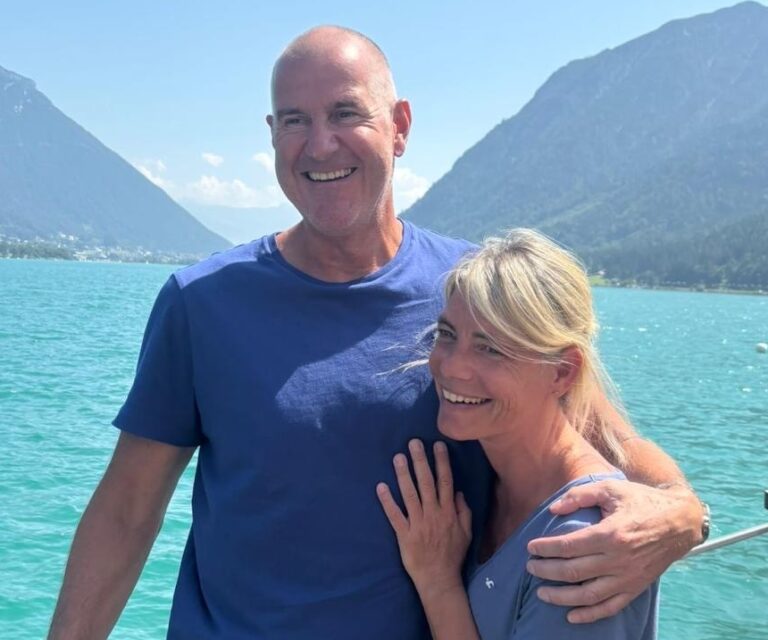
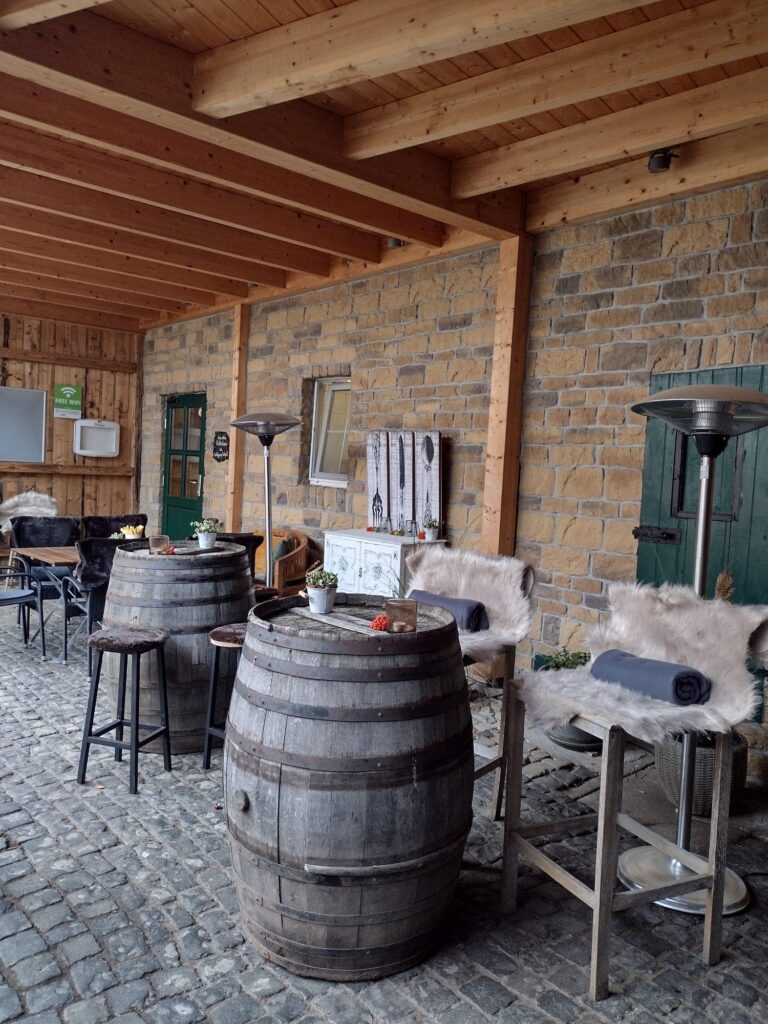
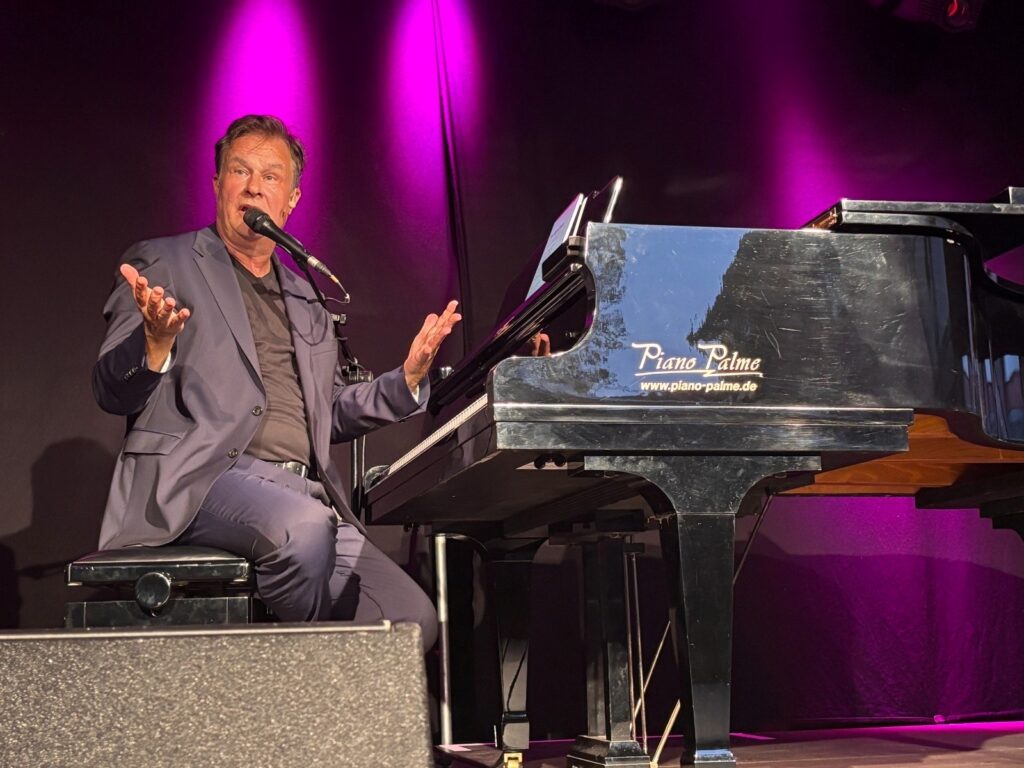
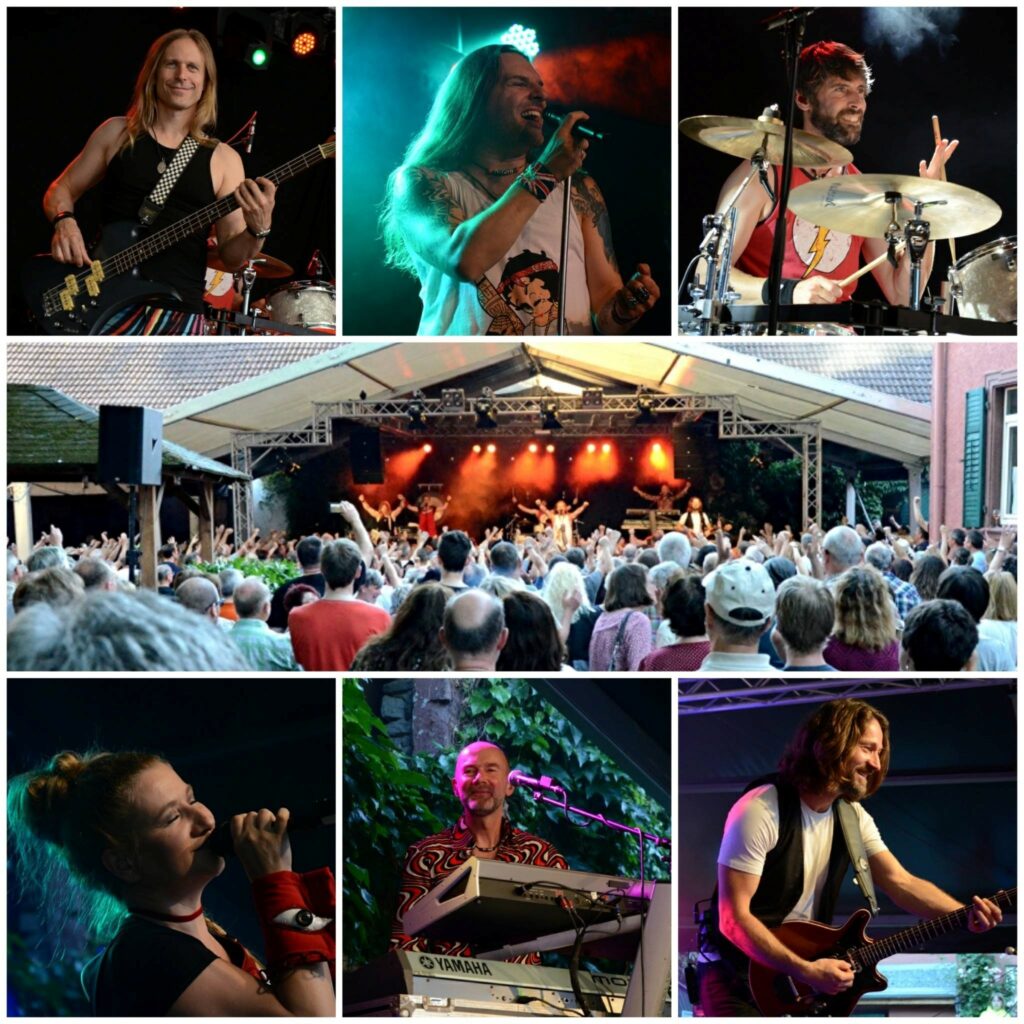
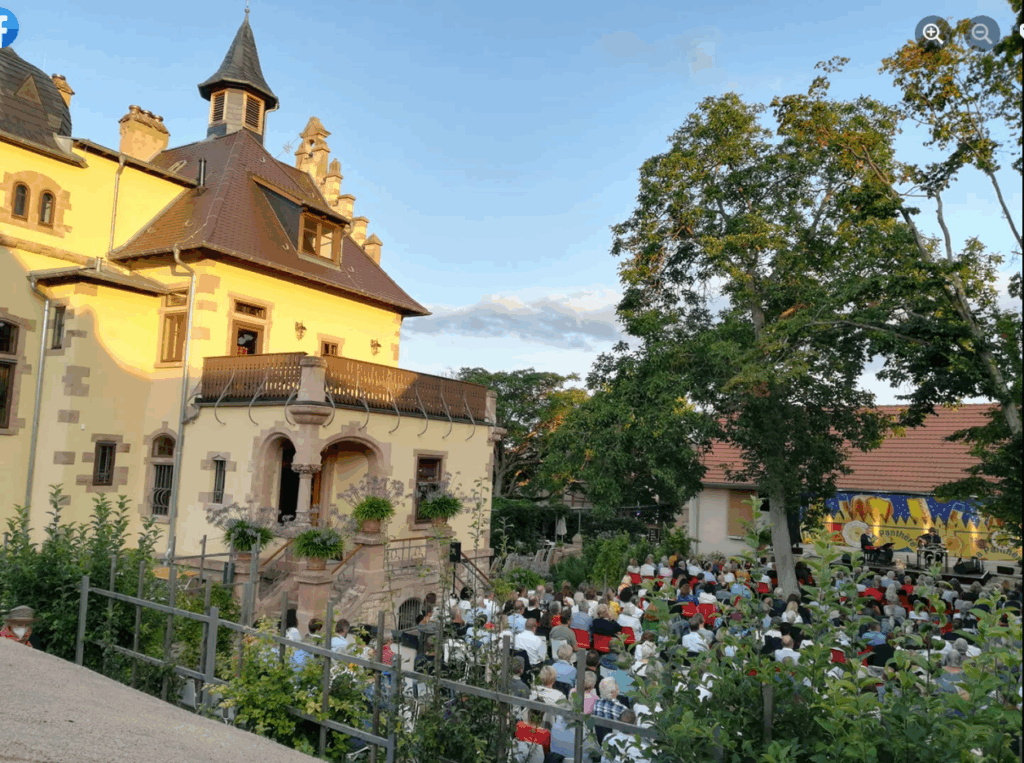
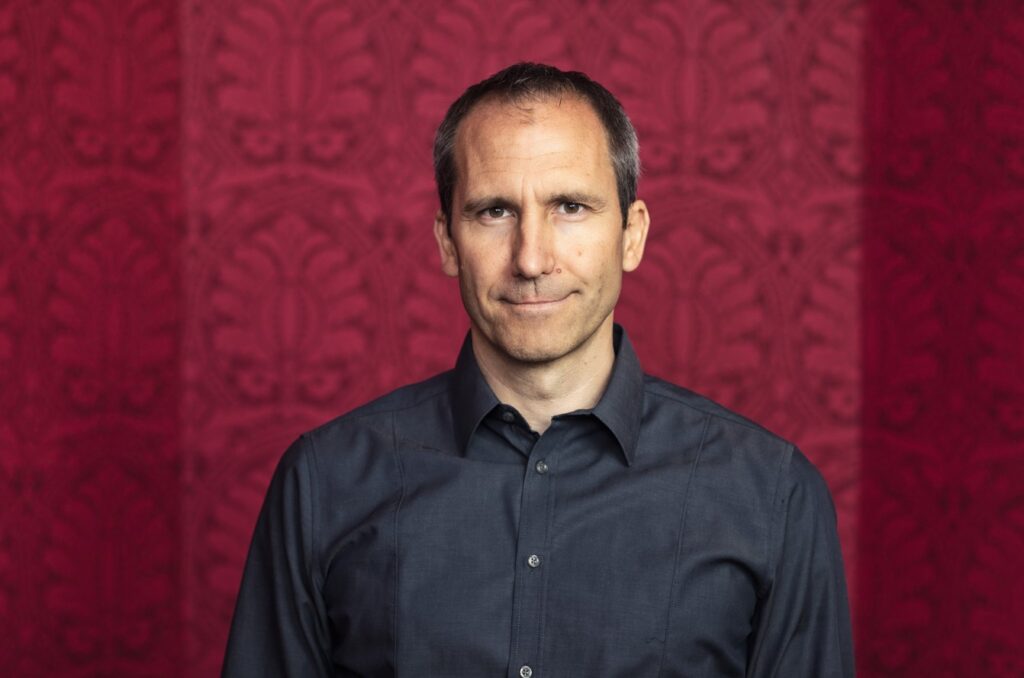
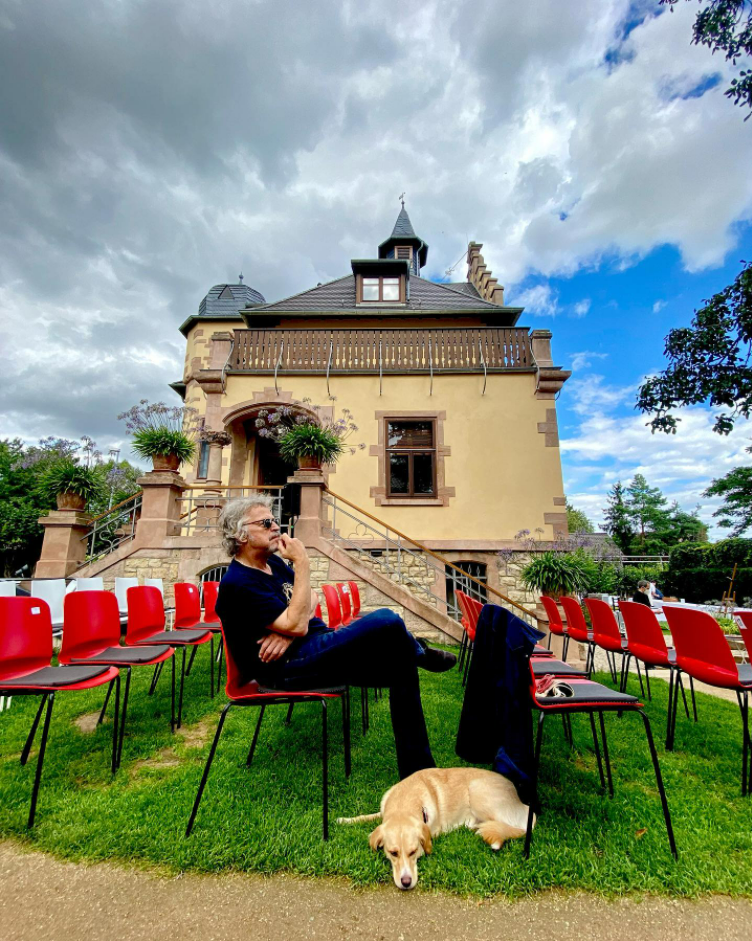
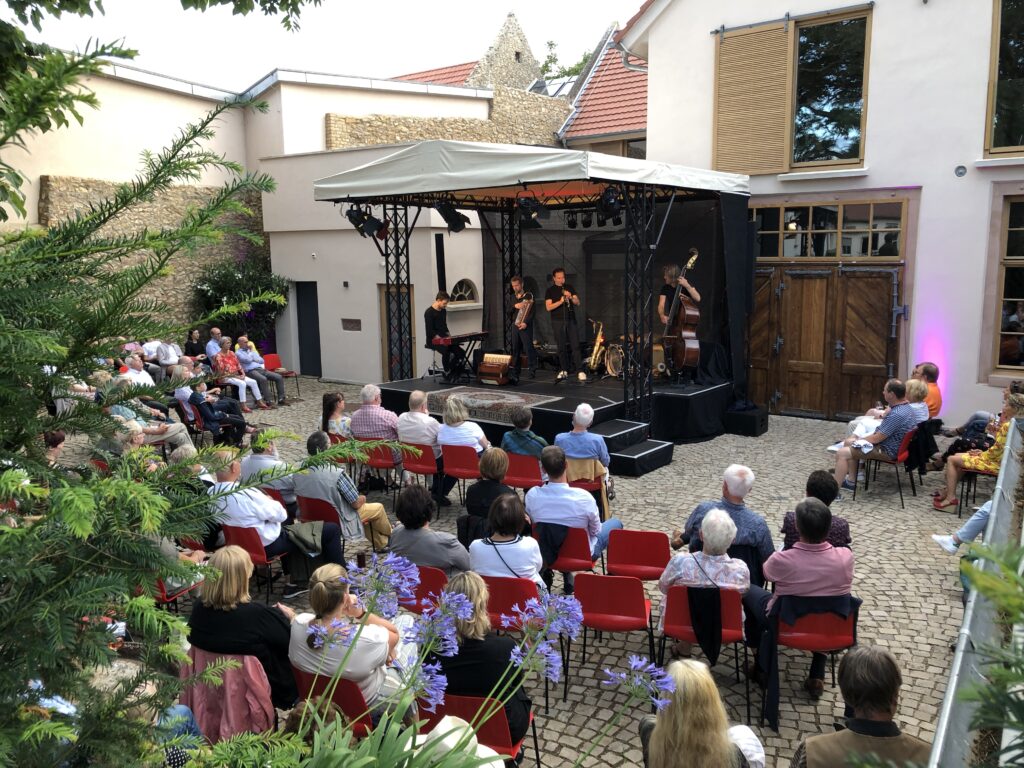
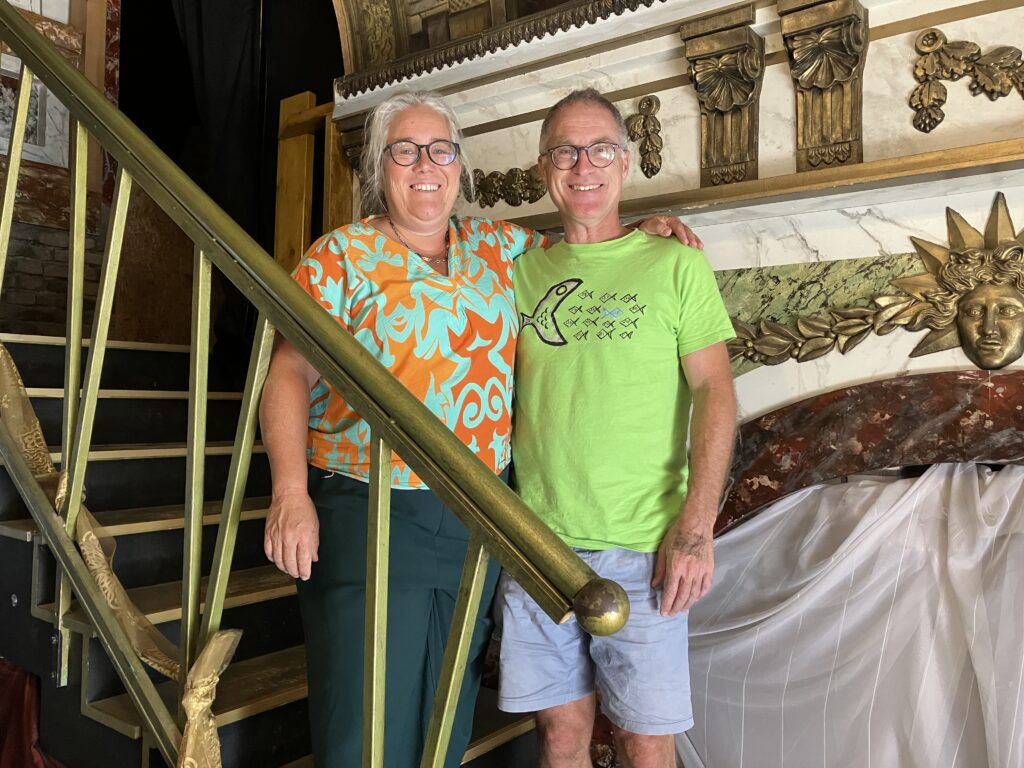
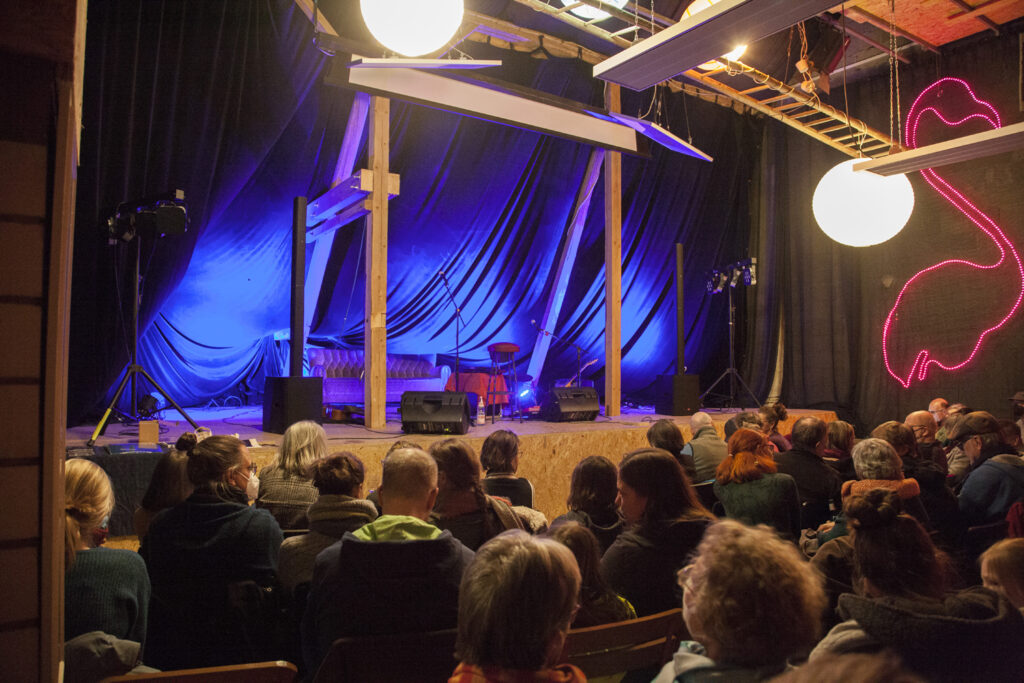
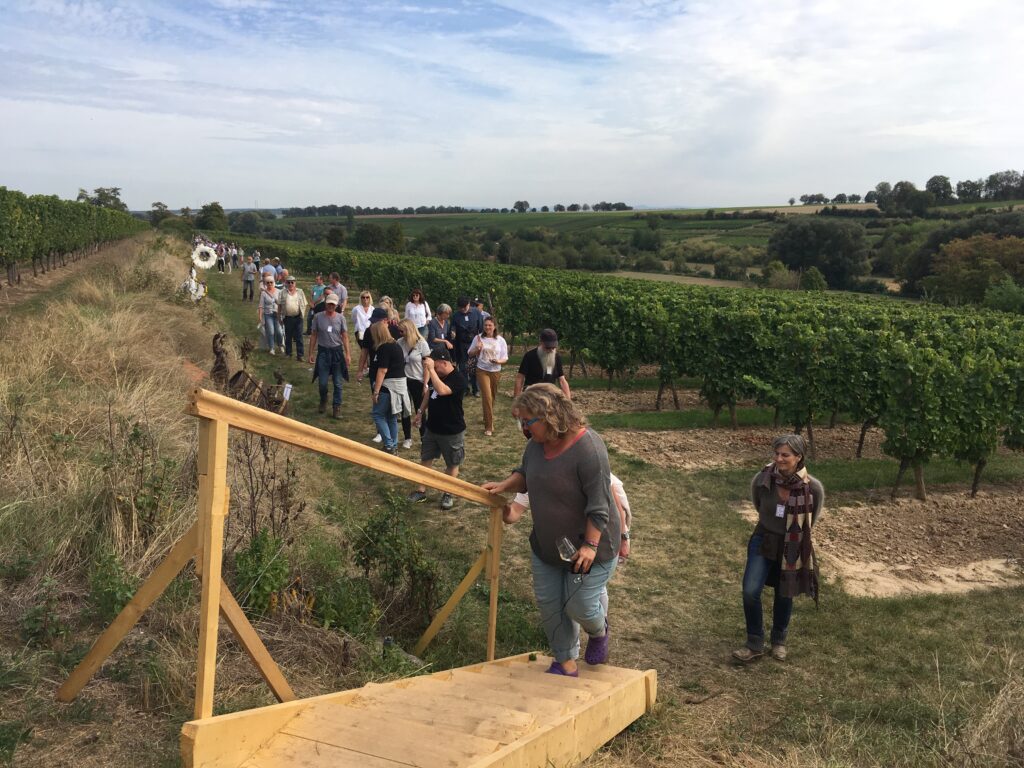
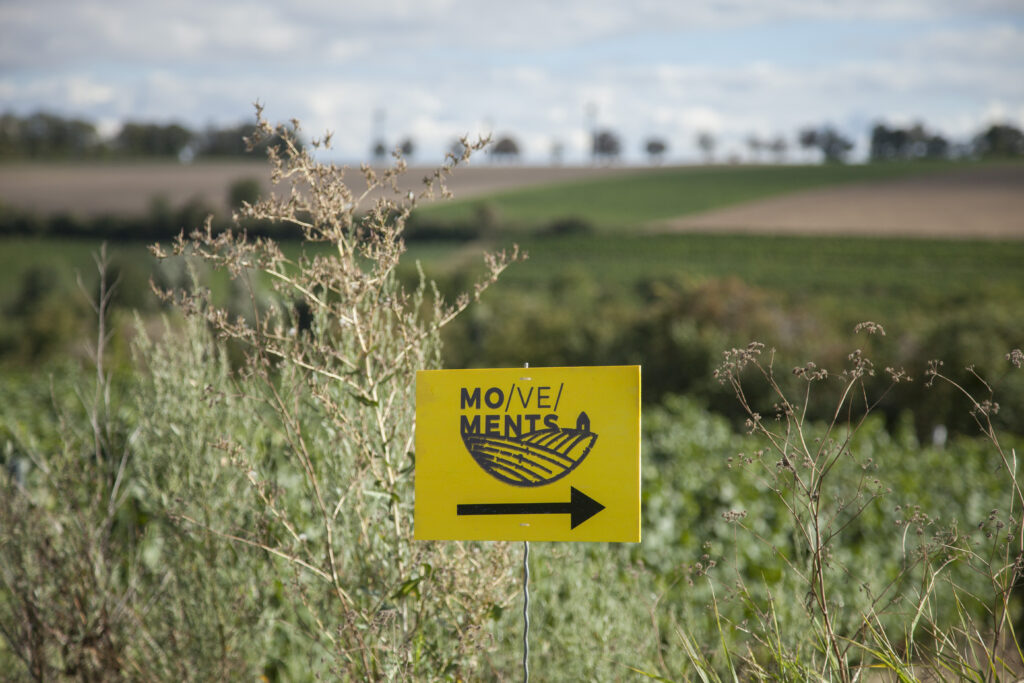

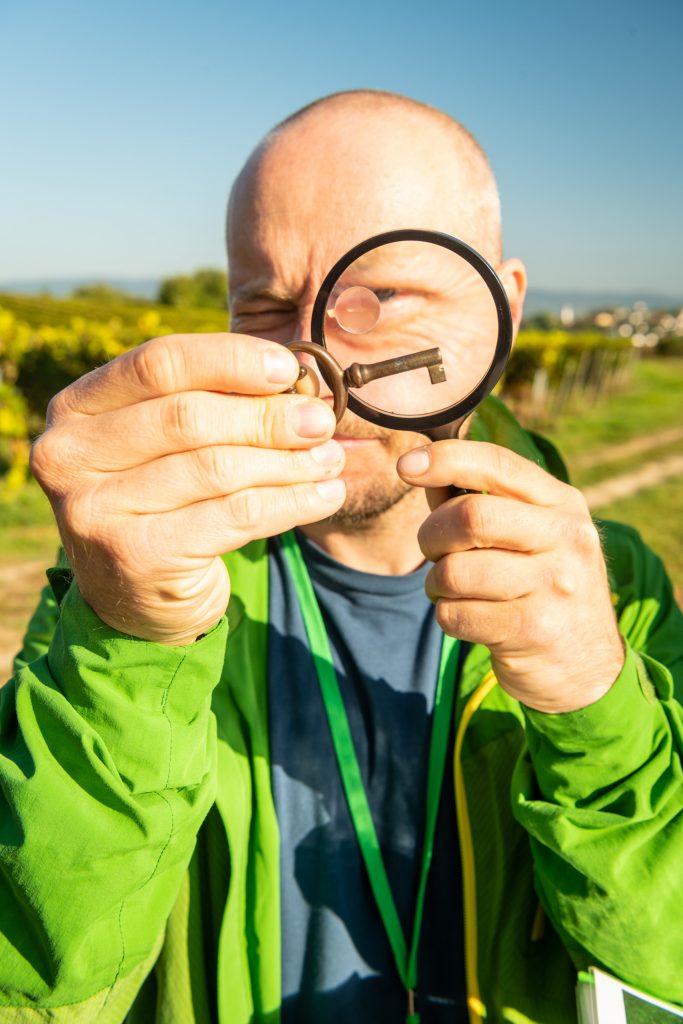
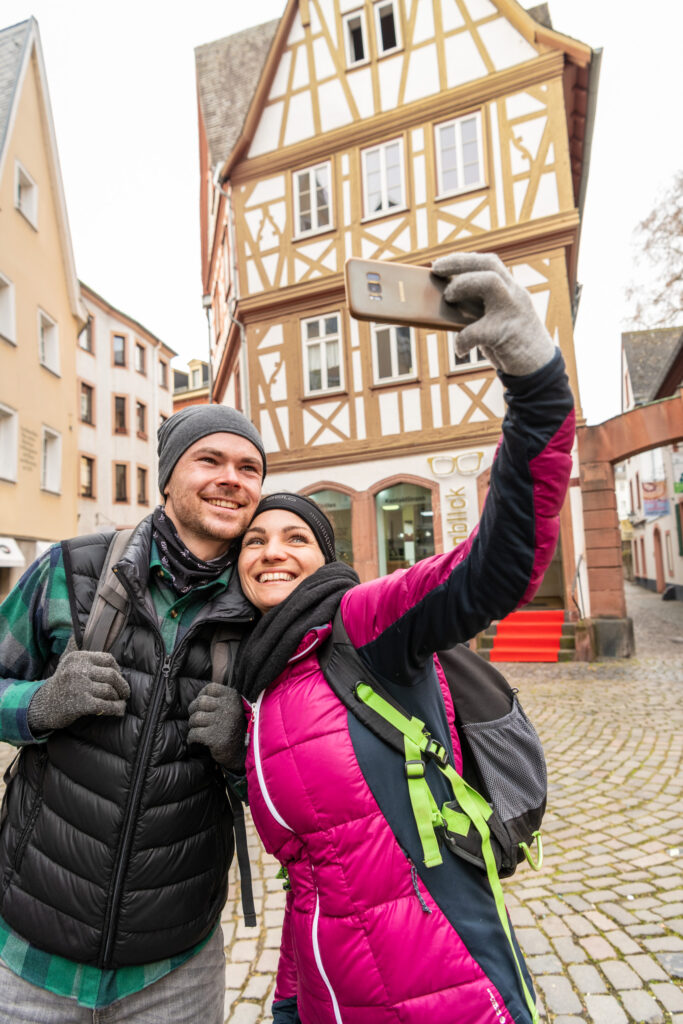
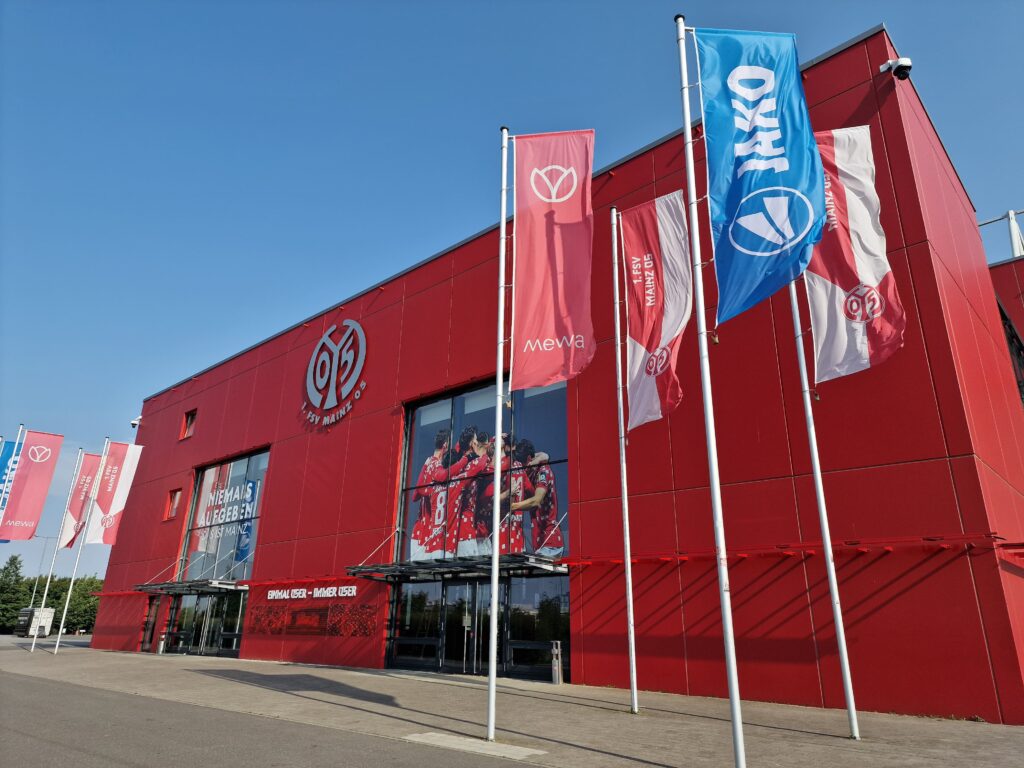
2 Responses
It's a shame that our beautiful cultural asset in Bechtolsheim, which has been bringing great artists to Rheinhessen for 14 years, has been forgotten.
Dear Roland, we have certainly not forgotten you - but we had to make a selection. Should we plan another article of this kind, Kulturgut Bechtolsheim will definitely be on the shortlist.